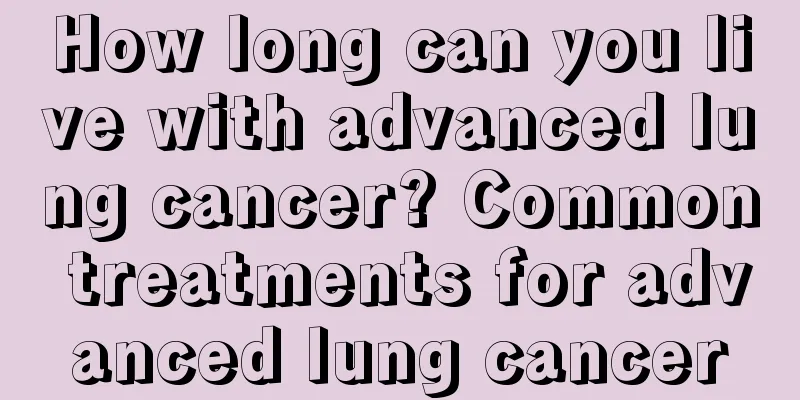What should be paid attention to in the diet for liver cancer? How to make psychological adjustments for liver cancer?

|
The diagnosis of liver cancer is very painful for patients. Faced with a malignant tumor like liver cancer, how can we be sure that it is a tumor? Some patients may often be misdiagnosed in this regard. We asked experts on liver cancer to talk about how to diagnose liver cancer so as to avoid tragedy. How to diagnose liver cancer? The most commonly used is imaging examination: 1. Magnetic resonance imaging (MRI): In liver cancer, T1 and T2 relaxation times are prolonged. In more than half of cases, the tumor shows lower or equal signal intensity than the surrounding liver tissue on the T1-weighted image, while it shows high signal intensity on the T1-weighted image. 2. CT: Among various imaging examinations, CT can best reflect the pathological morphology of the liver, such as the size, shape, location, number of lesions, and the presence or absence of hemorrhage and necrosis within the lesions. The invasiveness of the lesions can be understood from the edge of the lesions, and the invasion of the portal vein can be understood from the cancer thrombus and invasion of the portal vein. CT is considered to be the preferred non-invasive diagnostic method to supplement ultrasound imaging to estimate the extent of the lesions. 3. Real-time ultrasound imaging (US): Ultrasound imaging is widely used in clinical practice for its high sensitivity in showing lesions of solid soft tissue organs and its low impact on human tissues, as well as its low cost. As small liver cancer gradually grows, ultrasound imaging shows that the internal echo changes from low echo to high echo and mixed echo. Tumors with a diameter of less than 2 cm often have low echo nodules; those with a diameter of 2 to 3 cm show low echoes at the same frequency as the surrounding echoes; those with a diameter of 3 to 5 cm are mostly peripheral low echoes; and those with a diameter of more than 5 cm are mostly high echoes or mixed echoes. Three dietary taboos for liver cancer patients Taboo 1: Liver cancer patients cannot eat pickled foods Experts say: "The amount of preservatives in pickled foods sold outside, the pickling or fermentation process, the safety of the transportation process, and other factors will affect the production of mold, and the bacteria produced may cause cancer." Therefore, liver cancer patients are often warned to stay away from pickled foods. She recommends that it is better to choose fresh ingredients or pickle them yourself. If you want to buy pickled foods outside, it is better to first understand the production process. Taboo 2: Patients with liver disease eat meat, which can easily cause cancer Some patients with liver disease have learned from books that they should not eat red meat or meat products because meat is acidic and can cause cancer, which makes nutritionists laugh and cry. Experts explain: "Although red meat is acidic, the body still needs nutrients such as iron and protein contained in meat. Just eat more alkaline foods to balance the acidity of meat." Taboo 3: 1-2 cups of coffee a day can increase the risk of liver cancer Recently, the National Cancer Center found that "drinking 1-2 cups of coffee a day increases the incidence of liver cancer, because coffee contains a lot of antioxidants, and these compounds help inhibit the potential effects of liver cancer." Experts remind that coffee contains some antioxidants, but it also contains caffeine. Drinking coffee for antioxidants will cause insomnia and reduced immunity, which is not worth the loss. Even if there are no side effects such as insomnia and palpitations, "it is not advisable to drink more than 2 cups a day, otherwise it may disrupt your daily routine or damage your stomach." How to adjust the psychology of liver cancer patients 1. Suspicion: Once a patient learns that he has cancer, he will be restless, seek confirmation from many sources, feel nervous, and be suspicious. Therefore, medical staff should be cautious in their words and deeds, find out the purpose of the patient's inquiry, answer the patient's questions scientifically and tactfully, and avoid speaking directly to reduce the patient's degree of shock, so as to prevent the patient from losing confidence in treatment. 2. Fear: Patients know that they have cancer and often show fear, despair, loss of hope for life, and worry about their loved ones. Nurses should sympathize with patients, give comfort, and encourage patients to actively accept treatment to avoid delaying the disease. They should also emphasize the role of psychology in the disease and encourage patients to accept treatment with a positive attitude. 3. Pessimistic psychology: When patients are diagnosed with cancer, they will feel pessimistic and disappointed, which is manifested as more disappointment than expectation, depression, and unhappiness. At this time, nurses should show care, explain that the disease is being treated, and emphasize that a good mood is conducive to the prognosis of the disease. 4. Acceptance psychology: After a period of time, the patient begins to accept the fact that he has the disease, his mind becomes clear and stable, he is willing to accept treatment, and he places hope on treatment. Nurses should apply "suggestion" therapy in time, publicize the significance of treatment, and eliminate unfavorable factors to treatment, such as social factors, family factors, etc. |
Recommend
How long does it take to see the effect of radiotherapy for small cell lung cancer? Generally it takes about 6 cycles
Small cell lung cancer is such a serious disease ...
How to store okra? Can it be frozen?
Okra has certain medicinal value and has a good e...
What should I do if my fingers become numb due to cervical vertebrae?
As the pace of life accelerates, people's lif...
What are the abdominal massage techniques
Mild obesity and more severe obesity have already...
My eyes feel like something is rubbing against them
In daily life, we sometimes feel like there is so...
What's the matter with a sudden stomachache in the middle of the night
Speaking of stomachache, everyone has experienced...
How to clean the contact lens box
Nowadays, there are more and more people with myo...
Treatment methods for diarrhea and hiccups
Diarrhea is a particularly common disease, and hi...
Pay attention to half-year follow-up after bladder cancer surgery. What is the prognosis of advanced bladder cancer?
With the ever-increasing pace of life and the inc...
What are the most common symptoms of hamartoma
As we all know, doctors diagnose diseases through...
Are there any side effects of washing ears in the hospital?
When we were young, our mothers would clean our e...
Is primary uterine cancer serious?
Endometrial cancer is a malignant tumor of the fe...
Can multiple myeloma be cured? What are the treatments?
For the treatment of multiple myeloma, if it can ...
Ear massage is good for health care
Modern people not only have heavy work loads but ...
What should I do if I keep fantasizing in my head
Very young children often fantasize about the fut...









